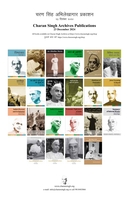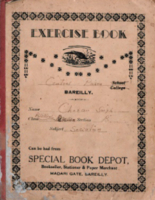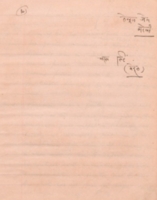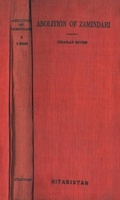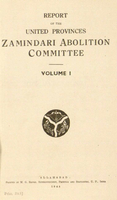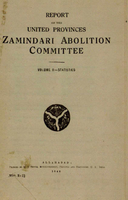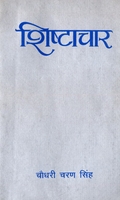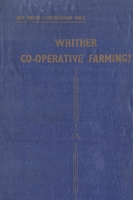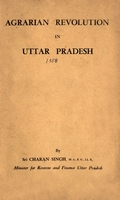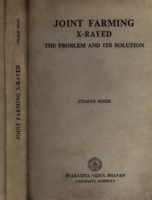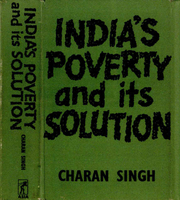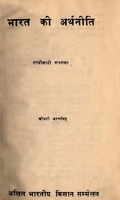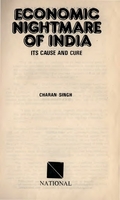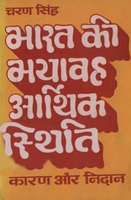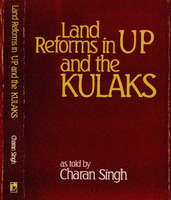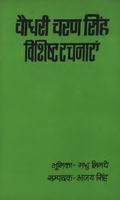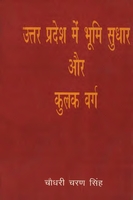Books by Charan Singh
Charan Singh was a prolific reader and writer, and happiest when preparing his arguments and pouring over the mass of data he deployed for his always cogently argued government notes, letters, media articles, speeches, books, political calls-to-action, and party manifestoes. His range of reading spanned history (British, Russian European, Chinese, Japanese and Indian), agriculture, economics, sociology and religion. His writings argued in favour of the centrality of the village and the agrarian way of life in India’s development thinking, without taking away from an appropriate industrialisation. He, like other leaders of the Indian National Congress who dedicated their lives to rid the country of British colonialism, fervently believed India would be born again to undo the wrongs of British rule against the peasant (imposing landlords) and the artisans (supporting industrial manufacturing in Britain) and would move the centre of gravity from the interests of the urban, British and Indian elites to the villages where the mass of India lived.
When he realised, in the early-1950s, that this was not to be he deployed his scholarship of the Indian revenue and agrarian system to turn his sights on fighting what would be a lonely and life-long political battle for the peasant, for improving village life, and in building nationalists of high moral character. His writings are suffused with this struggle against the urban and educated castes of his times, a struggle that he fought ferociously on the battlefield of elections and with his pen.When he realised, in the early-1950s, that this was not to be he deployed his scholarship of the Indian revenue and agrarian system to turn his sights on fighting what would be a lonely and life-long political battle for the peasant, for improving village life, and in building nationalists of high moral character. His writings are suffused with this struggle against the urban and educated castes of his times, a struggle that he fought ferociously on the battlefield of elections and with his pen.
The depth and range of his reading as reflected in the bibliography of the books he wrote is astounding, as you will see in this compilation. His high scholarship was, it seems to me, also a reflection of the times when every educated nationalist’s mind was in ferment and the thirst for reading was a means to fight the British and find solidarity with other oppressed peoples. For example, Red Star Over China by Edgar Snow was published in 1938, he read it in Bareilly Jail as early as 1942. What a time it must have been !The depth and range of his reading as reflected in the bibliography of the books he wrote is astounding, as you will see in this compilation. His high scholarship was, it seems to me, also a reflection of the times when every educated nationalist’s mind was in ferment and the thirst for reading was a means to fight the British and find solidarity with other oppressed peoples. For example, Red Star Over China by Edgar Snow was published in 1938, he read it in Bareilly Jail as early as 1942. What a time it must have been !
Charan Singh's erudition was also a credit to his intellect and depth of thinking, seeing that was a son of illiterate peasants, had studied in a village school and his college studies were in humble Agra - a distance from Cambridge and Oxford of the elites. His approach was grounded in Indian realities, and his arguments were based on global knowledge.
The vast majority of his political colleagues, in the Indian National Congress and in the other political parties he founded, had little to do with reading and writing busy as they were with factional politics and making money. His juniors and youth leaders were even less thus inclined, and only a minuscule part of his vast village following comprehended his wide grasp of global lessons and Indian realities. He was often heard hectoring his political audiences on his thoughts, like a school teacher, and his village audiences would listen in rapt and silent attention as if fully comprehending his academic logic. What a sight that was, and I saw many of these meetings.
He connected with academics (like Professors Paul R. Brass from University of Washington, and J.D. Sethi from Delhi School of Economics) as he could find in them a foil for the sharp economic and social thrusts of his arguments. How he made time for this intense level of intellectual engagement amidst the 'rough and tumble of representative parliamentary politics’ is a credit to his extraordinary capabilities.
Here are his complete works.
Harsh Singh Lohit


